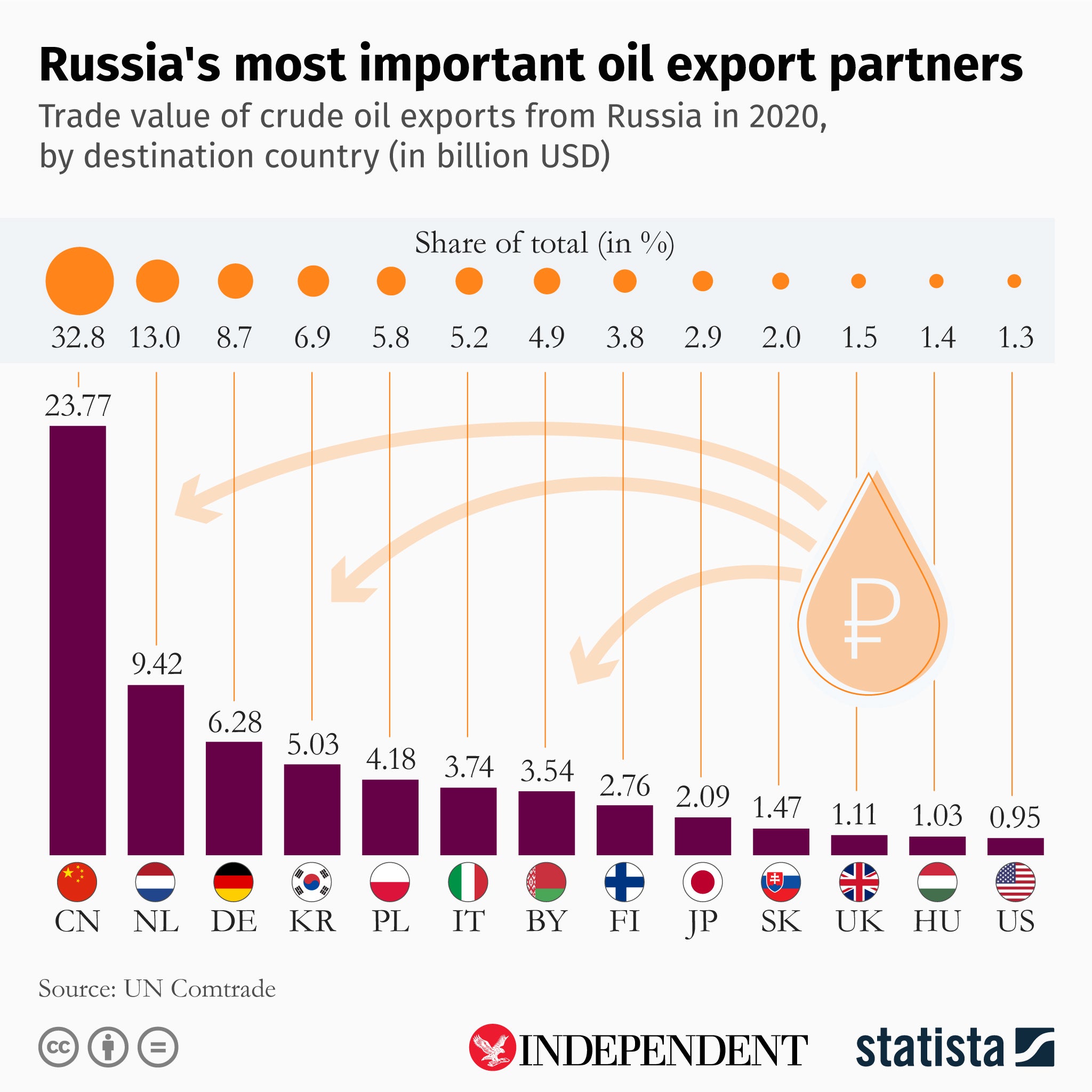What will the impact of the ban on Russian oil be on the US economy?
White House has pointed out that many drilling permits remain unused
Your support helps us to tell the story
From reproductive rights to climate change to Big Tech, The Independent is on the ground when the story is developing. Whether it's investigating the financials of Elon Musk's pro-Trump PAC or producing our latest documentary, 'The A Word', which shines a light on the American women fighting for reproductive rights, we know how important it is to parse out the facts from the messaging.
At such a critical moment in US history, we need reporters on the ground. Your donation allows us to keep sending journalists to speak to both sides of the story.
The Independent is trusted by Americans across the entire political spectrum. And unlike many other quality news outlets, we choose not to lock Americans out of our reporting and analysis with paywalls. We believe quality journalism should be available to everyone, paid for by those who can afford it.
Your support makes all the difference.US President Joe Biden’s announcement of a ban on importing Russian oil into the United States sent oil prices spiking north of $125 per barrel on Tuesday, adding to fears that American consumers could pay far more than they are used to at the pump this spring and summer. But the relatively small scale of Russo-American oil trading makes it unclear to what extent a US ban on Russian imports will hurt America’s economy — or Russia’s.
Members of the US Congress and Ukrainian officials have clamoured for such a ban in the wake of Russia’s unprovoked invasion of Ukraine, with the aim of choking off one of Moscow’s sole remaining sources of revenue, thereby adding to the economic woes that have gripped the Russian economy since the US and Europe levelled crippling sanctions on Russian financial institutions.
According to the American Automotive Association, US consumers are already paying more for gasoline than at any time since the group began tracking gas prices, with the average cost for a gallon of petrol having risen to just over $4.17 on 8 March, just before news broke of the impending Russian oil ban.
But the price of gas was rising even before Russian president Vladimir Putin launched his war on Ukraine nearly two weeks ago, driven to ever higher levels by supply chain disruptions brought on by the Covid-19 pandemic.
While a ban on Russian oil could drive prices higher still, any such spike would most likely be due to market instability and not a lack of supply in the US because America brings less than a tenth of oil imports in from Russian sources.
But Mr Biden and his aides have already taken steps to head off a calamitous rise in prices. Earlier this month, the president ordered the release of 30 million barrels from the US strategic petroleum reserve as part of a worldwide effort to keep prices under control as US and European economic sanctions tightened around Russia’s economy — including some financial institutions which handle oil revenues.
Can US domestic oil production take the place of Russian imports?
The short answer, according to experts, is “yes”. The United States consistently ranks as the number one or number two oil producer in the world.
But the devil is, as the saying goes, in the detail.
Unlike other major oil producers such as Russia, Saudi Arabia, and Venezuela, oil production in the US is a matter for the private sector.
This means short of invoking rarely-used war powers, Mr Biden cannot simply command oil companies to drill more.
And to a certain extent, that’s part of the reason gas prices have been rising.

While many of Mr Biden’s Republican adversaries point to a January 2021 executive order he signed to ban new drilling on federal lands as evidence that his policies — generally aimed at trading dependence on fossil fuels for adoption of renewables and electric vehicles — are hurting US consumers in their pocketbooks, White House officials have repeatedly pointed out that US oil and gas companies already hold thousands of permits to use drilling sites on different pieces of government property.
But the White House has also repeatedly pointed out that many of those drilling permits remain unused, even as US domestic production continues to reach new highs.
Can the US go elsewhere for extra oil supplies?
Again, the short answer is “yes” but the reality is far more complicated.
Even before Mr Biden banned Russian oil imports, America’s relationships with some of the world’s top oil producers were strained, to put it mildly.
Venezuela, formerly one of the top producers in the Western Hemisphere, has been under severe US sanctions since 2019.
And another top oil producing country, Iran, has been labouring under severe US sanctions in one form or another since the 1979 hostage crisis at the former US embassy in Tehran. Despite a temporary lull due to the 2015 Joint Comprehensive Plan of Action nuclear agreement, draconian sanctions on the Iranian oil sector have snapped back under the Trump administration and remain in place today.
If the US oil industry can’t make up any shortfall in supply caused by the Russian oil ban, America may need to look north for a solution.
A key US ally, Canada, is the world’s number four oil producer, with a capacity 5.23 million barrels per day, or roughly six per cent of the global supply.



Join our commenting forum
Join thought-provoking conversations, follow other Independent readers and see their replies
Comments